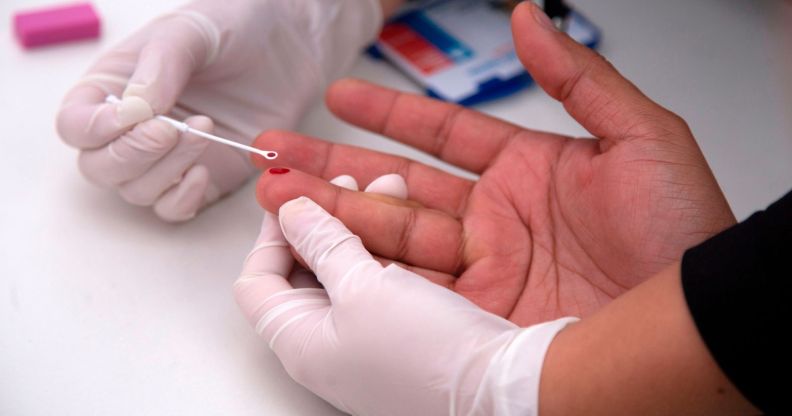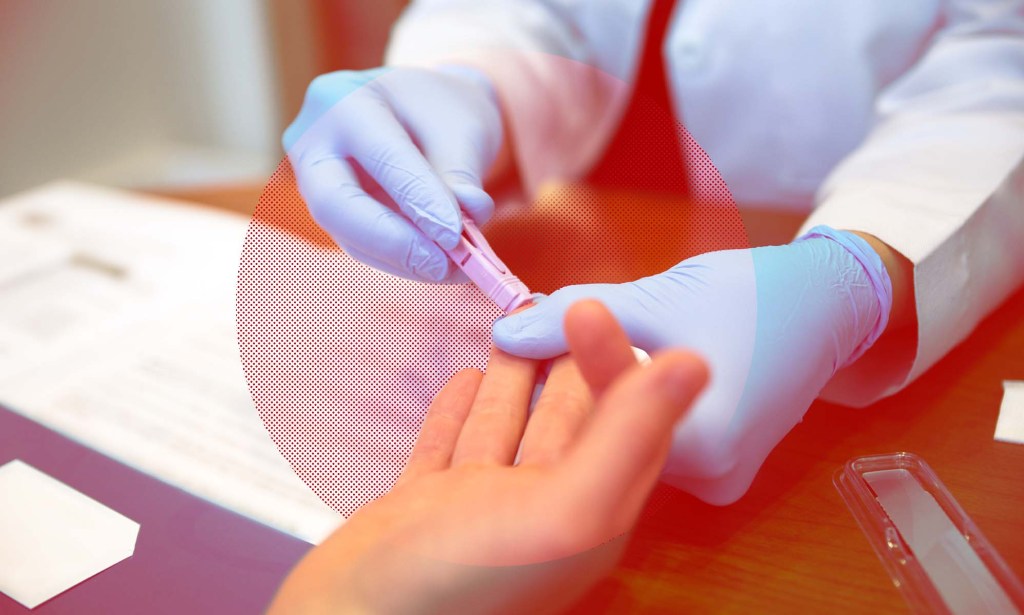Thousands call on Tory government to expand ‘crucial’ opt-out testing for HIV: ‘It saves lives’

Charities are calling on the government to expand opt-out testing. (Getty)
National AIDS Trust CEO Deborah Gold has said expanding opt-out testing is “the crucial missing piece” in the UK’s goal to end new HIV transmission by 2030.
The charity has come together with the Terrence Higgins Trust, the British Liver Trust and the Hepatitis C Trust to call on the government to introduce opt-out testing for HIV and hepatitis in all high-prevalence areas.
A letter to Tory public health minister Neil O’Brien and NHS chief executive Amanda Pritchard, which calls for the expansion of the hugely successful programme, has been signed by more than 2,200 people.
Since opt-out HIV testing was introduced in emergency departments in London, Manchester and Brighton in 2022, 450 people have been newly diagnosed with the virus.
Getting an early diagnosis means that a person will access effective treatment sooner, which prevents them from getting seriously ill or from passing the virus on.
The letter, submitted by charities and activists, tells the government that HIV and hepatitis testing “must become routine across the country” if transmission is to be reduced.

“Opt-out blood borne virus testing is saving lives and saving money,” the charities said, adding that it has already resulted in people being “newly diagnosed with HIV or re-engaged in care in just nine months”.
The letter continued: “It’s also not a coincidence that people diagnosed in emergency departments through opt-out testing are more likely to be Black African, women or older people – groups who are at higher risk of being diagnosed late.”
The charities are now urging the government to introduce opt-out testing in high-prevalence areas such as Birmingham, Portsmouth, Derby and Peterborough to ensure as many people get an early diagnosis as possible.
“In the first 100 days, the programme in the highest prevalence areas has so far cost £2 million but saved the NHS an estimated minimum of £6-8 million in care costs.
“It is also relieving pressure on other parts of the health service. In fact, in Croydon University Hospital, when they first started opt-out testing the average hospital stay for a newly diagnosed HIV patient was 34.9 days.

“After two years of opt-out HIV testing, the average stay is now just 2.4 days.”
Man was diagnosed with HIV after bicycle accident
Oliver Brown, a lieutenant commander in the Royal Navy, is one of those who was diagnosed with HIV after being tested through the opt-out system.
“I was 29 when I went to A&E after coming off my bike with one of my fingers badly sliced during the fall,” he said.
“Had Chelsea and Westminster Hospital not been part of a routine HIV opt-out testing programme in emergency departments, I may still be unaware of my status.
“Routine opt-out testing in A&E departments saves lives, it saved mine and stopped me passing on the virus to others.”
Deborah Gold, CEO of the National AIDS Trust, told PinkNews that expanding opt-out testing is one of the best ways the government can meaningfully reduce new HIV transmission.
“There is so much potential if we expand this programme, and we really don’t have very long to move and make progress if we’re going to hit this 2030 goal,” Gold said.

“Opt-out testing has the best chance of getting us there and that’s why we want the government to make the small investment to make that happen. We know from the evidence it will pay for itself with the early diagnoses that would otherwise be late.”
Ultimately, Gold would like to see opt-out testing introduced all across the UK – although the priority now must be in getting it up and running in all high-prevalence areas.
“I think opt-out testing has a role in all A&Es but this is a pragmatic campaign focused first on the areas of greater need.”
She added: “This is an incredible opportunity for the government and the NHS to do a tangible thing to end an epidemic that has lasted for 40 years.
“We know it works, we know it’s cost effective, we know it’s necessary. They just need to take action now to do it.”
How did this story make you feel?

